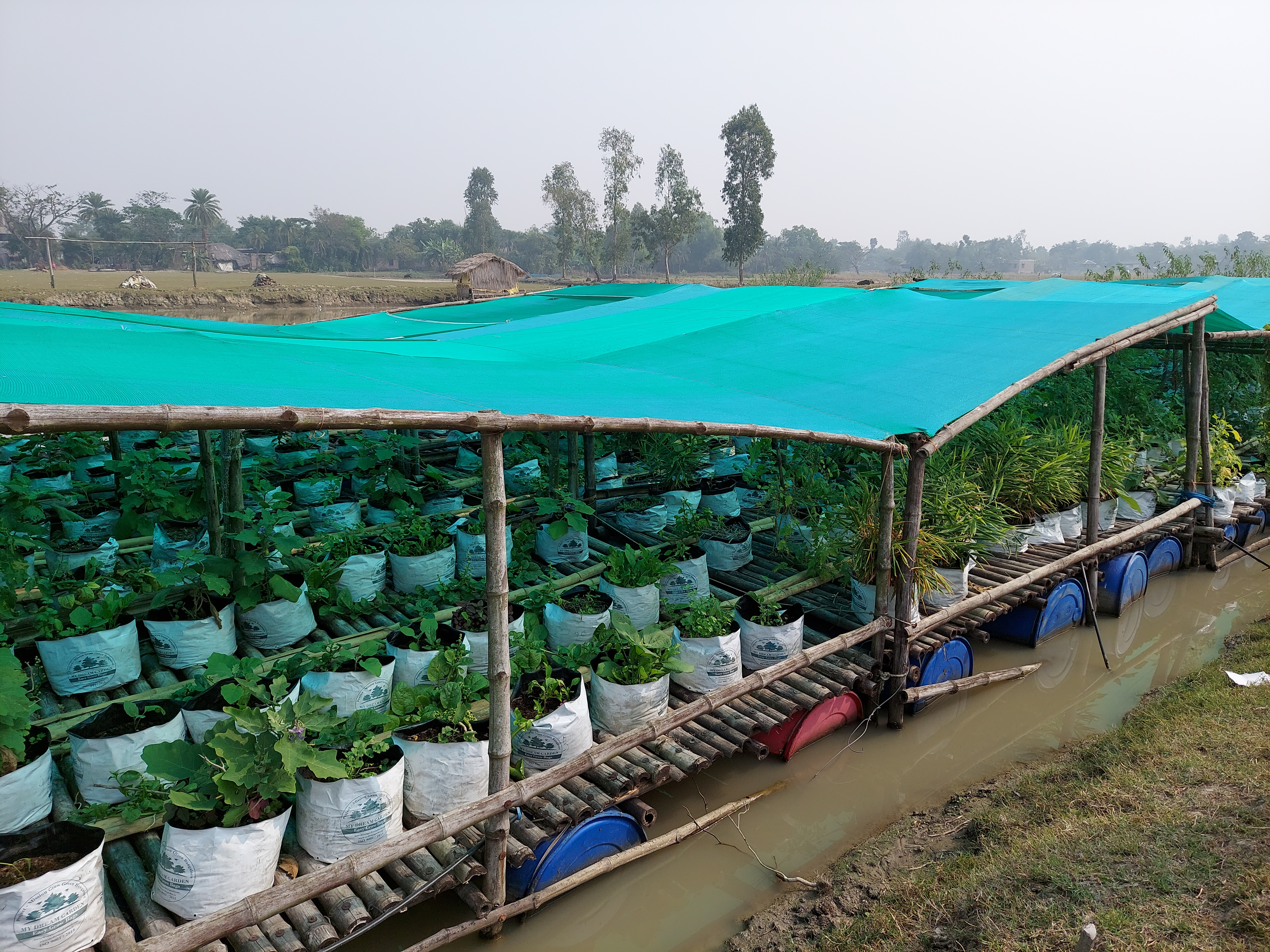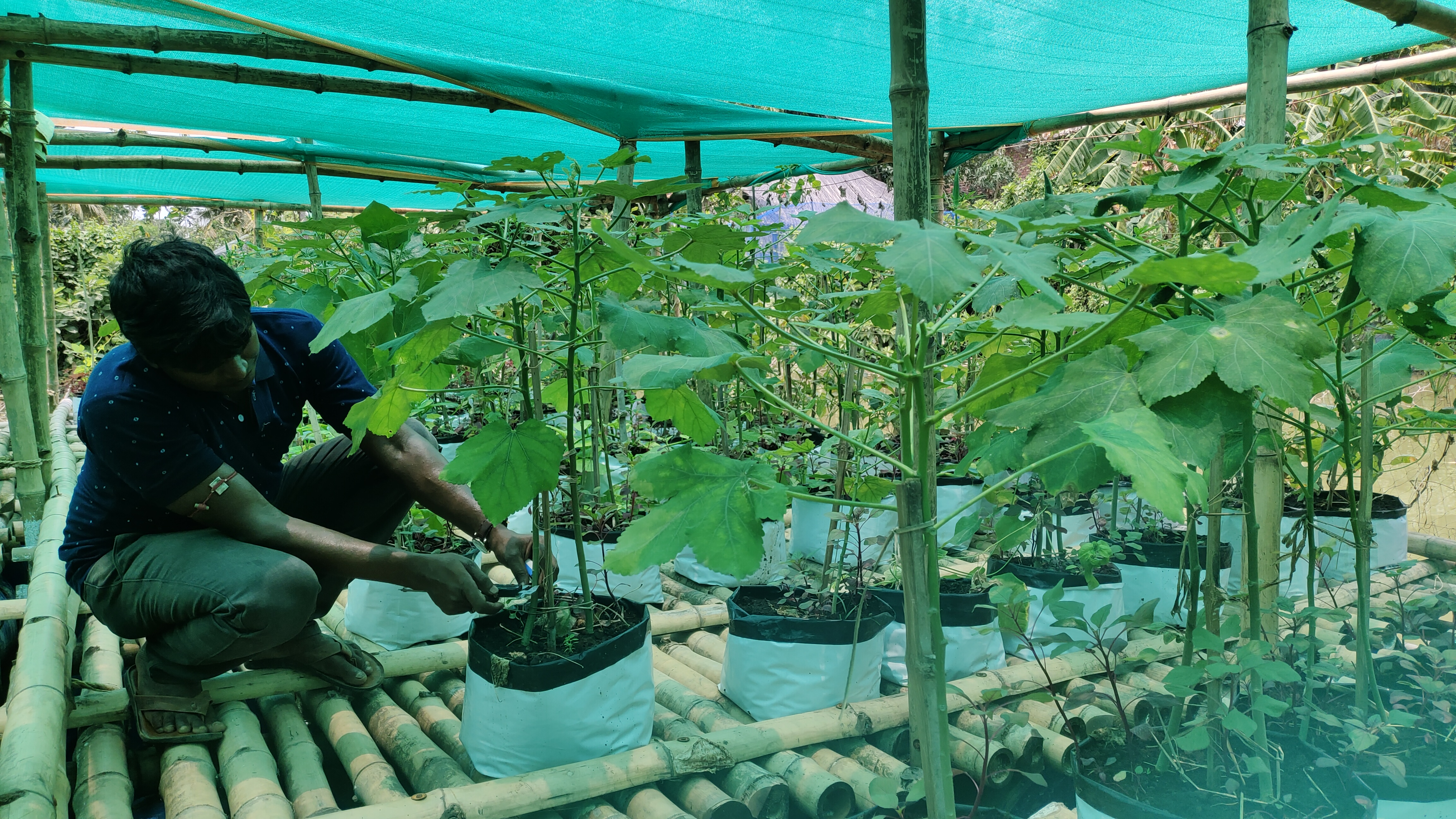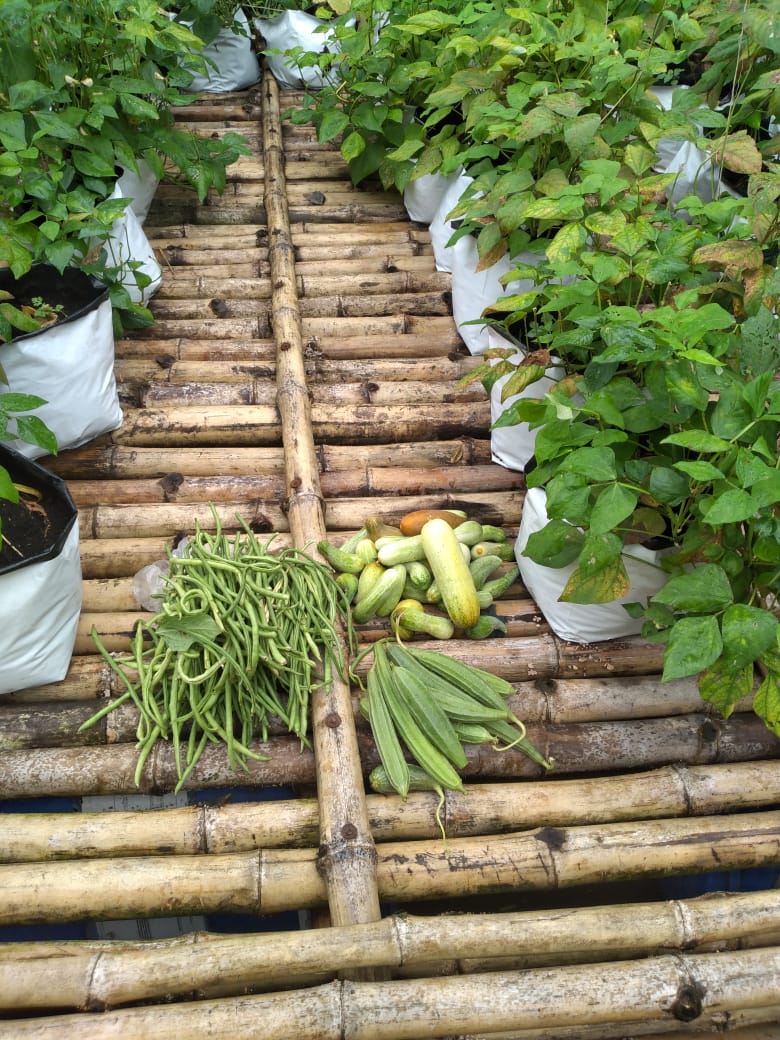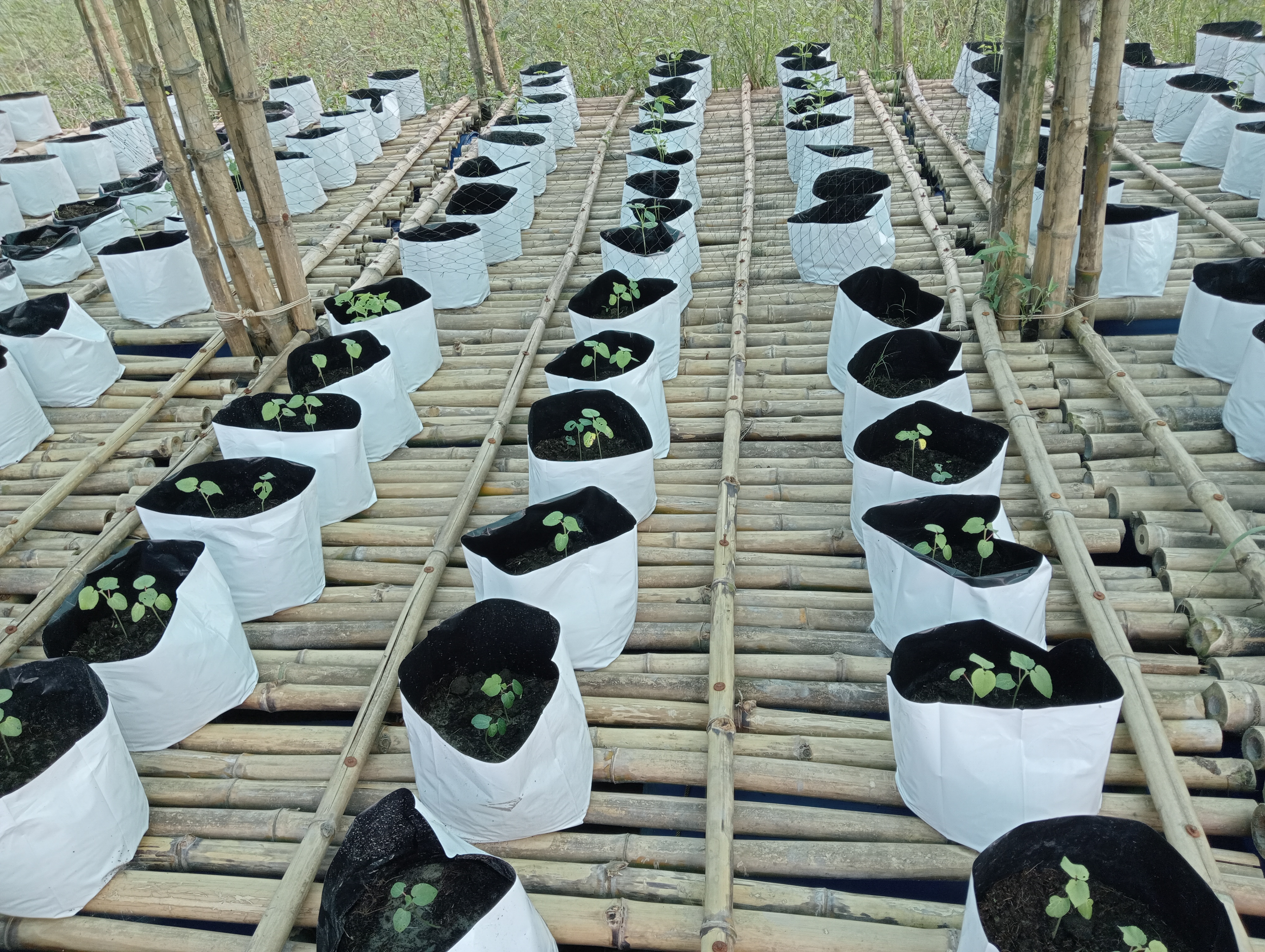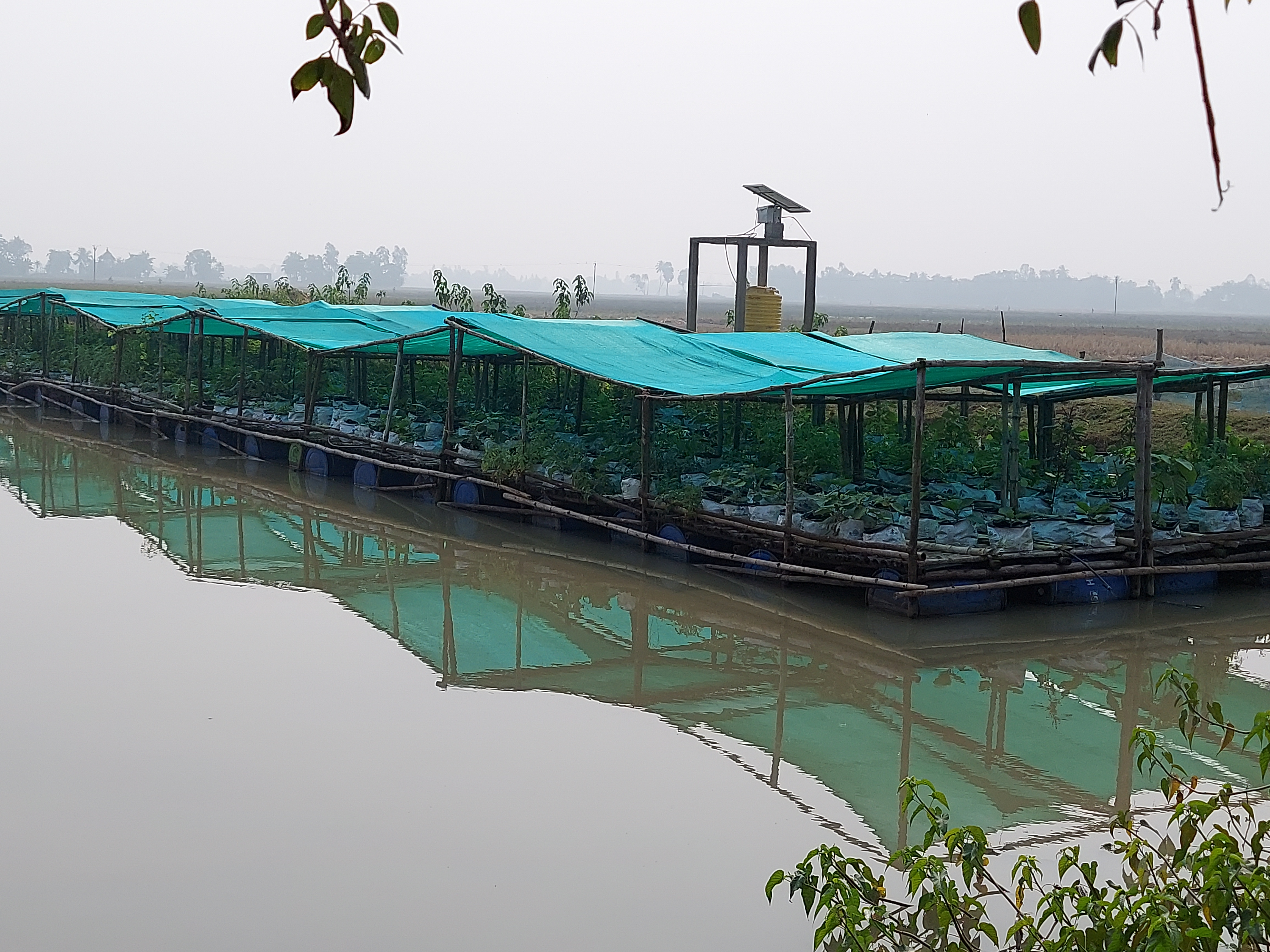
7. Adaptive Floats for Climate Resilient Organic Agriculture and Aquafarming for Marginal Farmers of South Asia, Living in Poverty Trap – Supported by Adaptation Fund climate Innovation Accelerator, United Nation Development Fund (UNDP)
Partners
SAFE & PFRIProject description
In today’s climate context, marginal communities face increasing risks to food security, nutrition, and livelihoods, compounded by climate-related events like El Niño and the Indian Ocean Dipole. This project introduces resilient, adaptive agro-farming practices, already successfully piloted in India and Bangladesh with support from the Global Development Network, Japan Social Development Fund, GIZ Germany, and India’s NABARD. Now, UNDP is expanding these practices to the climate-vulnerable Sundarbans, a World Heritage site rich in biodiversity, where communities are battling seawater intrusion and flooding from coastal storm surges.Objectives
1. Promote hydroponic float-farming and integrated aquaculture as adaptive, climate-resilient solutions for communities in coastal and riverine floodplains.2. Implement solar-powered desalination and micro-irrigation in organic float-farms to support sustainable, collective farming in flood-prone rural areas.
3. Enhance agrobiodiversity conservation and stabilize coastal embankments through regenerative agriculture and habitat restoration, providing alternative livelihoods for marginalized farmers and fishers.
Expected Outcomes
1. Improved food and nutritional security through FIAM (floating farms) with profitable yields, achieving 65-70% profit margins and a break-even point within 18 months over six cropping cycles.2. Strengthened local institutions and empowered women through targeted training in entrepreneurship, digital literacy, and health preparedness.
3. Inclusive livelihood opportunities for returning COVID-19 migrants, with a focus on sustainable growth and community resilience.
